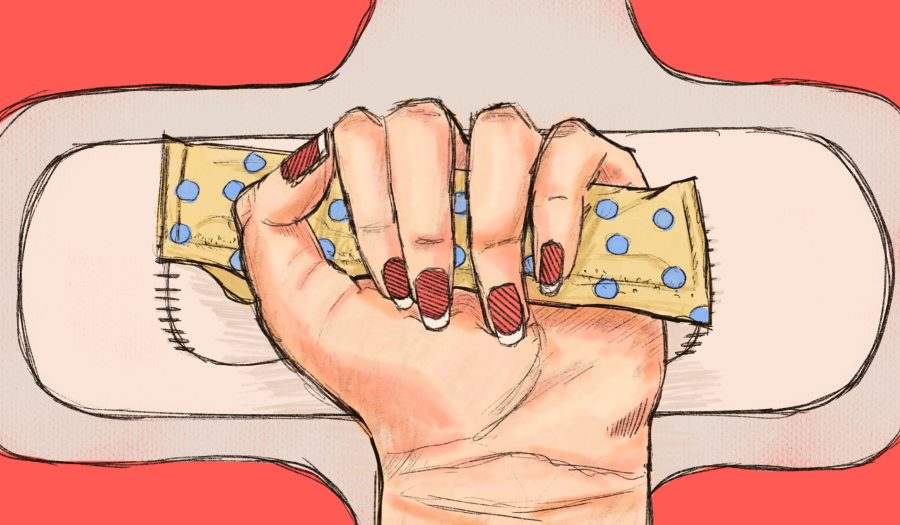California public schools and universities will have to provide free menstrual products in restrooms by the start of the 2022–23 school year thanks to a bill signed in October 2021, by Governor Gavin Newsom. The Menstrual Equity Act of 2021 applies to all grades 6–12 public schools, community colleges, and California State University campuses.
According to the bill, any public school, county education office, or charter school for middle and high school students will have to keep restrooms stocked with menstrual products in restrooms. This supply is expected to be made available, accessible, and freed in all women’s restrooms and all-gender restrooms, as well as in at least one men’s restroom. The law builds upon a previous 2017 law requiring low-income schools to provide products to disadvantaged students.
However, the University of California system is not included in this bill. Instead, the UC Regents and independent colleges and universities are highly encouraged to follow suit.
Assemblymember Cristina Garcia, who wrote this legislation stated that this bill is in response to the necessary need on the part of women and others with periods.
“Having convenient and free access to these products means our period won’t prevent us from being productive members of society and would alleviate the anxiety of trying to find a product when out in public,” Garcia said in a statement.
Supporters of the act say that this is the right step in guaranteeing women what should be seen as a natural right. Director of the Santa Clara Office of Women’s Policy, Division of Equity and Social Justice Protima Pandey expressed support for the bill, saying that it was necessary for ensuring gender equity in California.
“Access to free period products for vulnerable communities is a gender equity issue and it affects the wellbeing and health equity for all women, girls, non-binary, and transgender people,” Pandey said. “California can lead the nation in ensuring that we can finally destigmatize menstruation and move towards a framework of equity that includes the needs of menstruating individuals.”
This law and many other similar laws are meant to address the systemic issues related to menstrual products. These issues are commonly referred to as the Tampon Tax, or the sale of pads, tampons, and other menstrual products with an extra sales tax. Critics note that, in contrast, products primarily used by men such as hair growth products and Viagra are usually excluded from these extra sales taxes.
This isn’t the first law pushing for more menstrual equality in California; SB 92, a law put into effect Jan. 1, 2020, exempted menstrual products from sales and use taxes.
In an email, University of California Office of the President Media Relations Associate Director Ryan King said that the UC system is now taking the new bill into account and plans to follow along with its recommendations.
“UC believes it is well-suited to comply with this law and looks forward to continuing to offer access to menstrual products on our campuses, furthering gender-equity efforts and supporting student attendance,” King said.
Although the bill does not include University of California colleges in its jurisdiction, many UC campuses have already taken initiatives to provide affordable or free menstrual products. These range from student-run projects — such as the Free Menstrual Product Initiative at UC Berkeley — to administrative choices, such as the provision of free menstrual products in select residence halls at UC Santa Barbara.
Associate Director of University Communications Leslie Sepuka confirmed with The UCSD Guardian via email that UC San Diego provides free menstrual products in several restrooms on campus.
“UC San Diego provides free tampons and has feminine napkin dispensers in all the women’s restrooms at the Price Center and Student Center, which are centrally located on campus,” Sepuka explained in her email.
There are several resources available at UCSD that provide free sanitary products. The Basic Needs Center provides students with personal menstrual products such as tampons, pads, menstrual underwear, and menstrual cups. Additionally, the student-run General Store Co-op provides pads at low costs. If you need access to free menstrual products from the Basic Needs Center, fill out this form.
Art by Ava Bayley for The UCSD Guardian


















Max • Feb 2, 2022 at 12:14 pm
I absolutely agree with this bill. Even though I am a man, I believe that this is how it should be. This is a banal physiological need, and finally it became clear not only to those who live with it. I’m surprised they didn’t think of this before. But well done! It seems to me that this should be introduced at the legislative level in all countries of the world.
https://renasorganic.com/products/cbd-1000-mg-pain-relief-cream/
Aaron Reed • Jan 24, 2022 at 5:11 am
It is high time to do this at the legislative level. California is moving in the right direction and all states should be watching and learning.